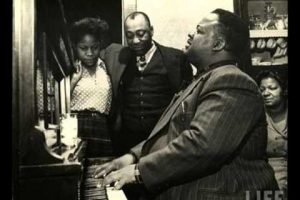Like many people my age (and younger), my impressions of the world, for better or worse, are shaped by video. I was thoroughly convinced for years that World War II was in black and white until about the middle of 1944, when suddenly it became a full color affair. The Pacific Theater apparently was colorized first.
Likewise, my impression of France is from video. (I was sort of there there only once, and barely. I covered a trade show in Geneva, Switzerland that was so crowded that our hotel was across the border in France. We had to carry our passports to get to and from the exhibition hall.) Charles Trenet is my idea of France. You’ll know what I mean after a few bars.
The song above is “Douce France,” which starts about a minute into the video. Old jazz people used to say that somebody who “got” jazz and had sufficient skills was swinging, no matter what the tempo of the song. It is an inherent understanding of what differentiates jazz from stodgier forms of music. It’s an ethos more than a style. Anyone with any doubts that the French can swing should check out Trenet and the pianist, especially in the second half of the song. I am assuming the pianist is French.
The song below is “La Mer.” It’s fascinating: It turns out that “Beyond the Sea” — perhaps Bobby Darin’s greatest hit — is a cover of this song, at least musically. The lyrics, apparently, are completely different. Trenet’s version is a bit slower, but great.
Here is a bit of a profile of Trenet at RFI music. I am purposefully pulling out the passage about the war years, which clearly presented choices for entertainers in occupied countries:
At the start of WWII, Charles Trenet, who had become a national hero, was mobilized. He was barracked at the military base of Salon-de-Provence until he was demobilized in June 40. Then he moved back to Paris, where the cultural and night scenes were still in full swing despite the German occupation. In the French capital, he would perform at the Folies-Bergère or at the Gaieté Parisienne (two famous cabarets) in front of a public often consisting of German officers and soldiers. The collaborationist press tried to compromise his name and published that ‘Trenet’ was the anagram of ‘Netter’—a Jewish name. But the singer was able to show his family tree to the German authorities, proving he had no Jewish origin. This act of self-defense will be reproached to him long after the end of the war. Like many other artists of the time, he chose to go on entertaining the occupant rather than sacrifice his career, showing little interest in the Jewish issue—an attitude that some still regard as collaboration. What’s more, he even agreed, when asked by the German authorities, to go and sing for the French prisoners in Germany (Edith Piaf and Maurice Chevalier did the same). However, although he spoke perfect German, Trenet would always refuse to speak that language or to socialize with the occupant at the parties thrown after the concerts.
During the Liberation the artist did not suffer from the suspicious and accusing climate. Nevertheless he decided to move to America where he lived for a few years. It did not take long before the Americans were fond of the French singer. After a few triumphant concerts at the Bagdad in New York, Trenet became a big hit in the States and was approached by Hollywood. He met the likes of George Gershwin, Louis Armstrong and stroke up a long-lasting friendship with Charlie Chaplin. His song ‘La Mer’, which according to the legend he had composed with Leo Chauliac on a train in 1943, was recorded in 1946. It was immediately translated into English by Jack Lawrence and became ‘Beyond the sea’. It was a smashing success in the English-speaking world where it became a classic. About 4000 covers were made of ‘La Mer’ across the world.
The 4,000 figure in the last sentence is, of course, a mistake. Trenet died in 2001 at age 88.










Add Comment